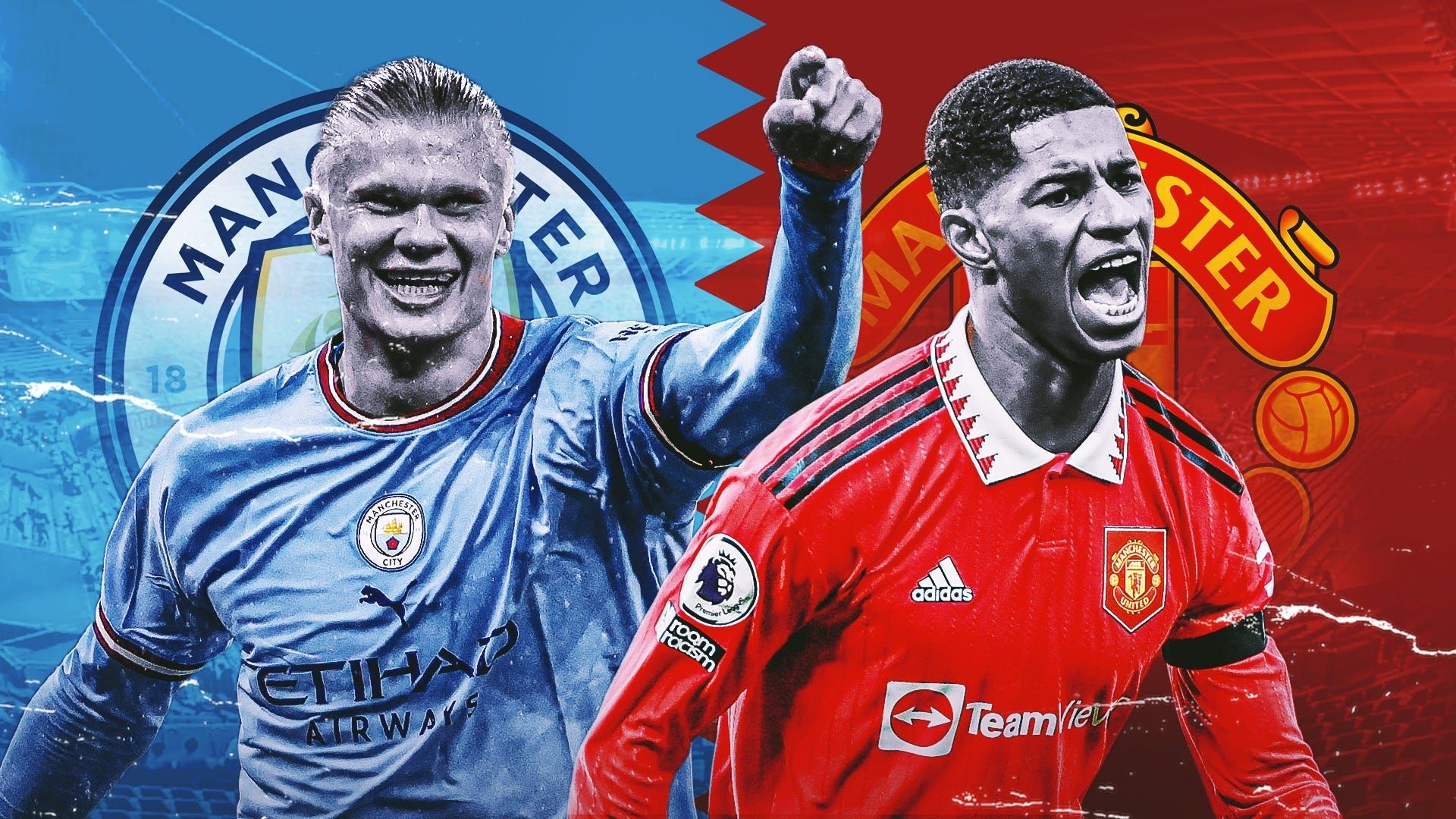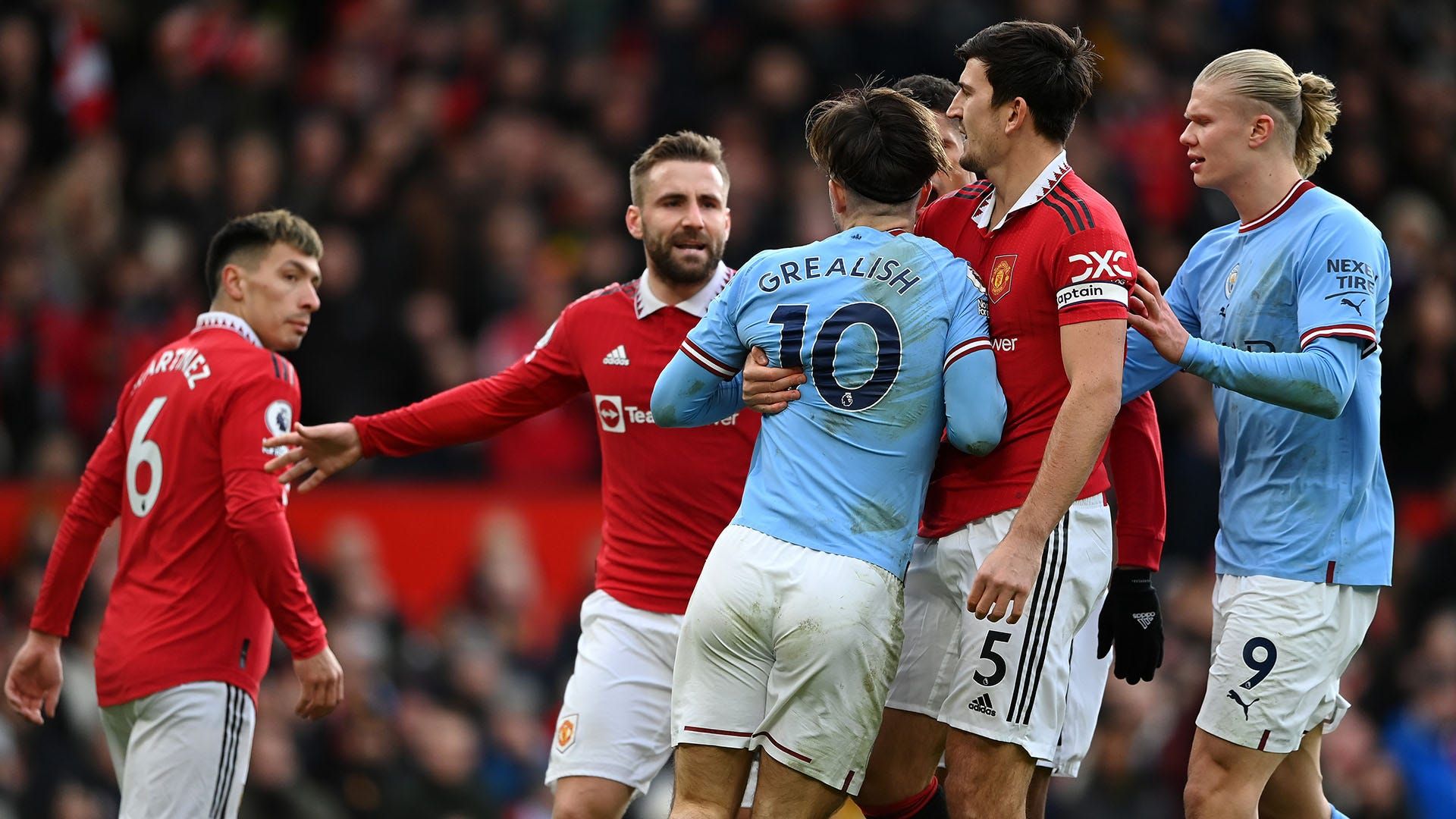City vs Manchester United: A clash of titans, a derby steeped in history, and a rivalry that transcends football. This intense matchup between two of England’s most successful clubs offers a captivating narrative spanning decades of triumphs, heartbreaks, and evolving dynamics. From contrasting origins and managerial legacies to distinct playing styles and global fan bases, the City-United rivalry provides a compelling case study in football’s enduring power.
This analysis delves into the historical context, exploring the founding and evolution of both clubs, charting key moments and significant matches that defined their identities. We examine the contrasting stadium atmospheres, fan cultures, and financial structures that underpin this iconic rivalry. Furthermore, we analyze their playing styles, tactical approaches, and global impact, culminating in a discussion of memorable matches and the ongoing narrative of this captivating contest.
Manchester City vs Manchester United: A Rivalry Forged in History
The Manchester derby, a clash between Manchester City and Manchester United, is arguably the most intense and captivating rivalry in English football. This deep-seated animosity transcends mere sporting competition; it’s a battle for city supremacy, a reflection of contrasting histories, and a showcase of contrasting football philosophies. This article delves into the multifaceted nature of this rivalry, examining its historical roots, stadium atmospheres, playing styles, financial power, global reach, and defining moments.
Historical Context: A Tale of Two Clubs
Understanding the Manchester derby requires exploring the distinct paths of both clubs. Manchester United, formed as Newton Heath LYR Football Club in 1878, evolved through periods of financial instability before achieving greatness under the stewardship of Sir Matt Busby. City, founded as St. Mark’s (West Gorton) in 1880, experienced a more turbulent early history, marked by financial struggles and periods in lower leagues.
Key moments such as United’s Munich air disaster in 1958 and City’s rise to prominence in the late 20th and early 21st centuries shaped their respective identities and fan bases.
Significant matches and rivalries have punctuated their history. The 1968 FA Cup final, a 4-1 United victory, stands as a landmark moment. The late 1990s and 2000s saw a shift in power, with United dominating under Sir Alex Ferguson. The recent era, however, has been characterized by City’s dominance under Pep Guardiola.
| Manager Name | Years Managed | Key Achievements | Notable Playing Style |
|---|---|---|---|
| Sir Matt Busby | 1945-1969 | Multiple league titles, European Cup (1968) | Attacking, Total Football influences |
| Sir Alex Ferguson | 1986-2013 | Multiple league titles, Champions League (1999, 2008) | Pragmatic, counter-attacking, strong team spirit |
| Pep Guardiola | 2016-Present | Multiple league titles, domestic treble (2019) | Possession-based, tiki-taka influences, high pressing |
| Roberto Mancini | 2009-2013 | FA Cup (2011), Premier League (2012) | Balanced approach, strong attacking focus |
Stadiums and Fan Culture: A City Divided
The atmosphere at a Manchester derby is electric. Old Trafford, with its history and grandeur, offers a traditional football experience. Etihad Stadium, a modern marvel, boasts a more vibrant and technologically advanced atmosphere. Fan experiences differ, with Old Trafford emphasizing tradition and history, while Etihad emphasizes modern amenities and a more contemporary feel.
Finish your research with information from premier league 4k reddit.
Manchester United’s fanbase is globally recognized for its passionate and loyal support, steeped in tradition and a sense of history. Manchester City’s fanbase, while younger, exhibits a modern, cosmopolitan feel. Their chants and songs reflect their distinct identities and rivalries.
Old Trafford: A classic stadium with a capacity of approximately 74,000, characterized by its imposing stands and traditional architecture.
Etihad Stadium: A modern stadium with a capacity of approximately 55,000, known for its sleek design and state-of-the-art facilities.
Playing Styles and Tactics: A Contrast in Philosophies
Currently, Manchester City employs a possession-based, high-pressing style under Pep Guardiola, focusing on intricate passing and fluid movement. Manchester United’s approach under Erik ten Hag has evolved to a more proactive style, emphasizing fast transitions and direct attacks. Key players like Erling Haaland (City) and Marcus Rashford (United) play crucial roles within their respective team’s systems. Recent matches highlight the contrasting styles, with City often dominating possession and United seeking opportunities on the counter-attack.
Financial Aspects and Ownership: The Power of Investment
Both clubs operate at the highest echelons of world football, but their financial histories and ownership structures differ significantly. Manchester United, publicly traded, has a more established history of revenue generation. Manchester City’s rise to financial dominance is largely attributed to its ownership by Abu Dhabi United Group, which has facilitated significant investment in players and infrastructure.
- Manchester United: Key financial milestones include listing on the New York Stock Exchange, substantial revenue from sponsorships and merchandise sales.
- Manchester City: Key financial milestones include significant investment from Abu Dhabi United Group, rapid growth in revenue, and substantial spending on player transfers.
Global Impact and Branding: A Worldwide Phenomenon
Both clubs boast significant global reach and brand recognition, leveraging their marketing strategies to cultivate massive international fanbases. Social media and digital platforms have amplified their global presence, connecting them with millions of fans worldwide.
Manchester United: A large and diverse fanbase spanning across continents, particularly strong in Asia and North America.
Manchester City: A rapidly growing global fanbase, with strong presence in Asia and the Middle East, mirroring its ownership’s influence.
Key Rivalries and Significant Matches: Defining Moments, City vs manchester united

Beyond the Manchester derby, both clubs have other significant rivalries. Manchester United’s rivalry with Liverpool is legendary, while Manchester City also contests fiercely with Arsenal and Liverpool in recent years. Three memorable Manchester derbies include the 6-1 City victory in 2011, United’s 4-3 victory in 2009, and City’s title-clinching win in 2012. These matches are often highlighted in media coverage, shaping public perception of the rivalry and its significance in the context of English football.
The City vs Manchester United rivalry is far more than just a football match; it’s a cultural phenomenon. The historical context, the passionate fan bases, the financial power, and the global reach all contribute to a rivalry that continues to captivate audiences worldwide. While the on-field battle for supremacy remains fierce, the underlying narrative of this contest reflects the broader evolution of the sport itself, showcasing the ever-shifting dynamics of power, ambition, and the enduring passion of the fans.

